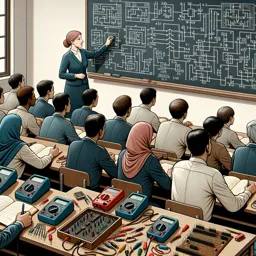Introduction
Electrical wiring is a foundational skill for electricians and anyone pursuing a career in electrical engineering. Whether working on residential, commercial, or industrial projects, understanding wiring techniques and best practices is essential for safety, reliability, and compliance with codes. This article explores the core concepts, methods, and recommendations for mastering electrical wiring.
Types of Electrical Wiring
Electricians commonly encounter several types of wiring systems:
- Non-metallic Sheathed Cable (NM): Often called Romex, used in residential buildings.
- Conduit Wiring: Wires are run through metal or plastic tubing, suitable for commercial and industrial environments.
- Armored Cable (AC): Offers protection in environments where extra durability is needed.
- Underground Feeder (UF): Designed for direct burial without conduit.
Key Techniques for Efficient Wiring
- Proper Planning: Develop a clear schematic or diagram before starting any project. Consider load calculations, outlet placement, and future scalability.
- Correct Wire Sizing: Match wire gauge to the expected electrical load to prevent overheating and ensure system efficiency.
- Secure Connections: Use the right connectors and ensure tight, clean connections to reduce risks of short circuits or fires.
- Color Coding: Adhere to local and international color codes for wires to avoid confusion and maintain safety protocols.
Best Practices for Safety and Compliance
- Follow Electrical Codes: Stay updated on national and local electrical codes to ensure installations are legally compliant.
- Use Personal Protective Equipment (PPE): Always wear insulated gloves, eye protection, and suitable clothing when working with electricity.
- Test Before Working: Always test wires and circuits for live electricity before beginning repairs or installations.
- Label Circuits: Clearly label all circuits for ease of maintenance and emergency troubleshooting.
Conclusion
Mastering electrical wiring requires a balance of theoretical knowledge and hands-on experience. By understanding the various types of wiring, applying the correct techniques, and adhering to best safety practices, aspiring electricians and electrical engineers can build a strong foundation for a successful and safe career.































